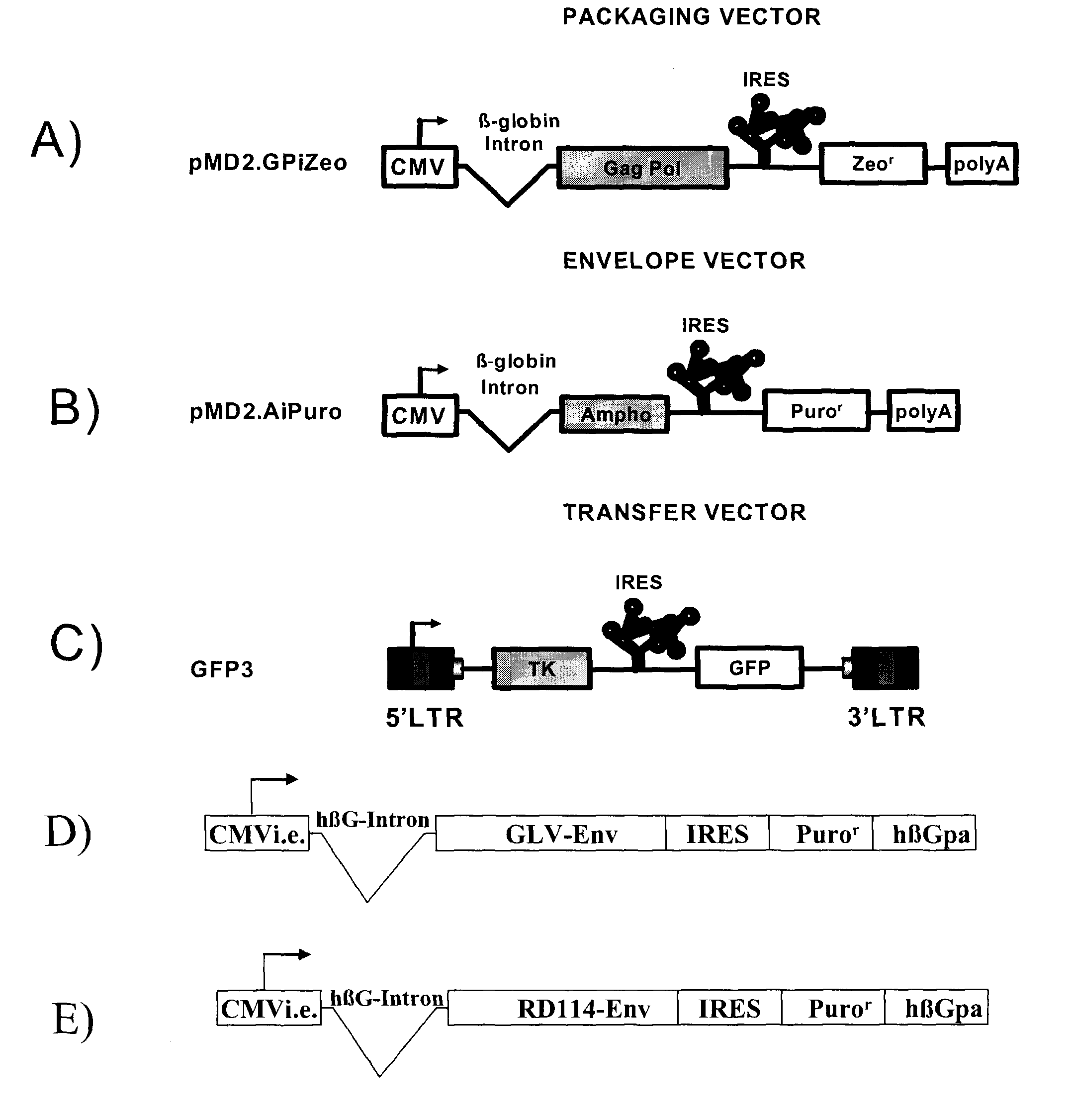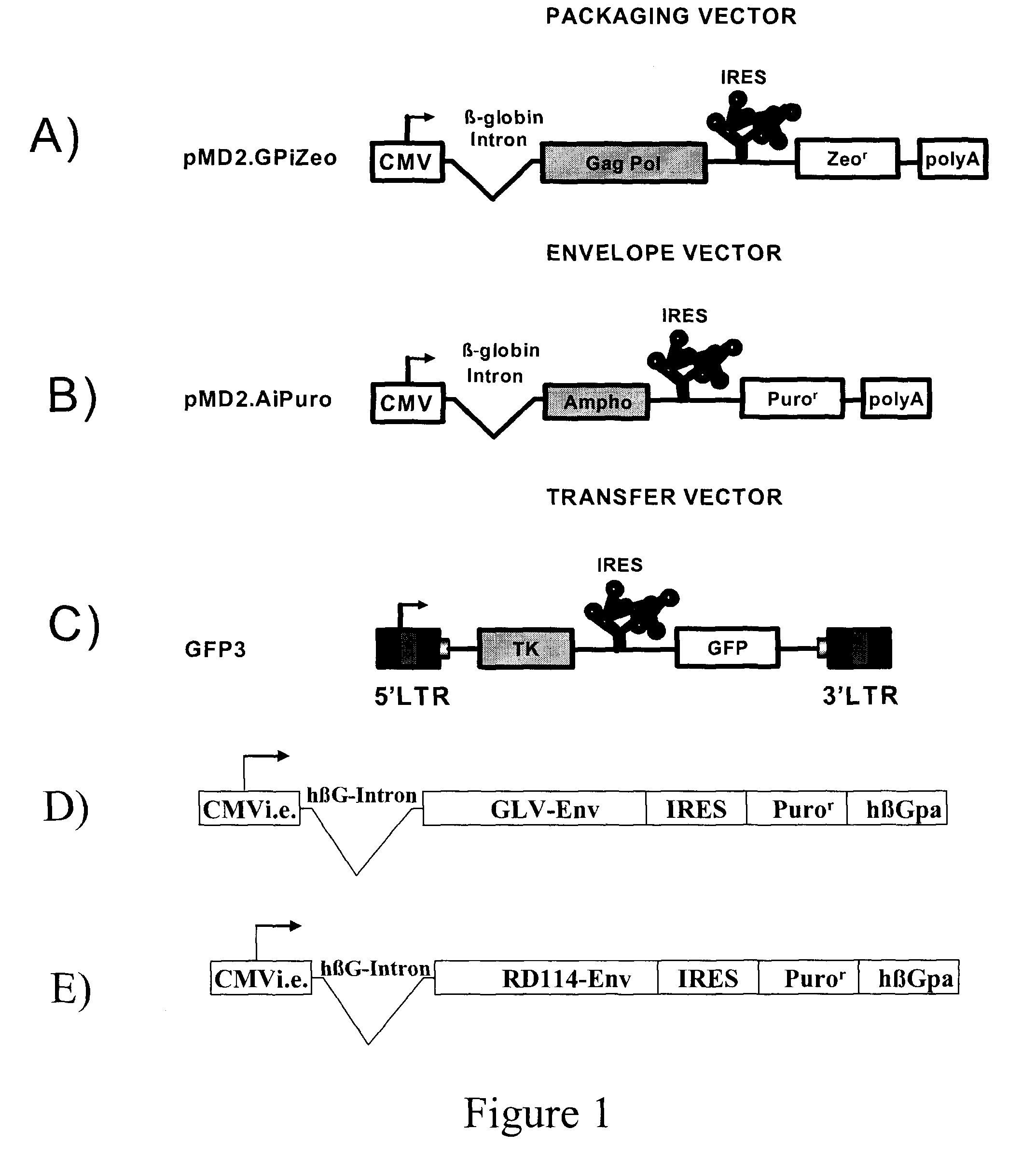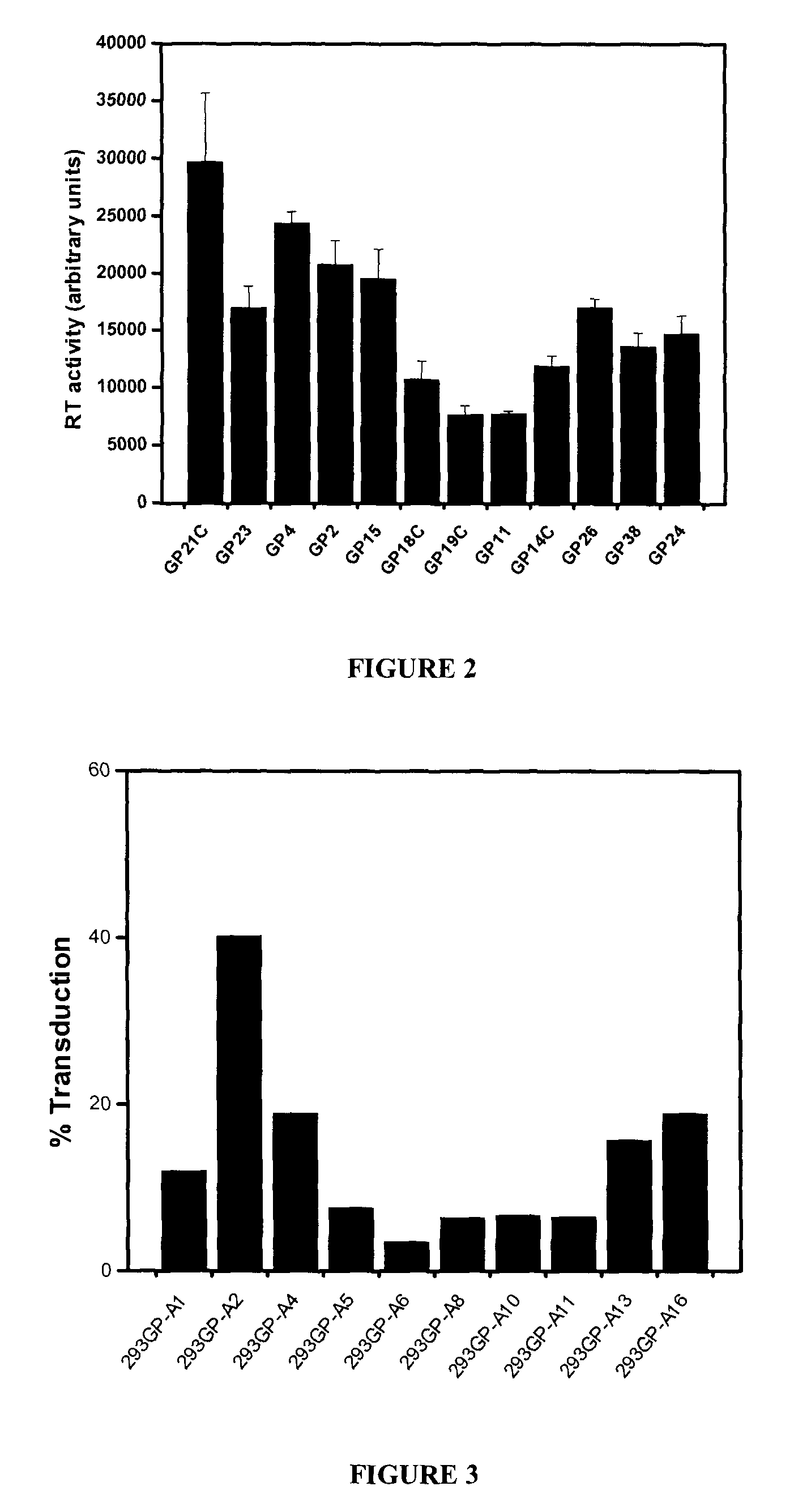High-titer retroviral packaging cells
a retrovirus and packaging cell technology, applied in the field of cell lines, can solve the problems of limited clinical use scale, large volume of retrovirus production, cumbersome production, and high cost, and achieve the effect of reducing the number of cell lines
- Summary
- Abstract
- Description
- Claims
- Application Information
AI Technical Summary
Benefits of technology
Problems solved by technology
Method used
Image
Examples
example i
Generation of a High-Titer Packaging Cell Line that can Grow in Suspension and Serum-Free Media
Materials and Methods
Construction of the Expression Plasmids
[0067]All plasmids used to generate GP21C, A2, RD30 and GLV9 clones are derived from the 4.2 kbp pMD2.KG plasmid (derived from pMD.G; Dull T. et al., J. Virol. 1998 November; 72(11):8463-8471) (FIGS. 1A, 1B, 1D &1E). This vector contains a CMVi.e. promoter followed by a human β-globin intron and a polylinker. Bicistronic vectors derived from pMD2.KG containing an encephalomyocarditis virus (EMCV) IRES followed by a selection gene were used to express gag-pol and env viral proteins. For the purpose of the present invention, a gene encoding for a resistance to either Zeocin™ or puromycin was chosen (zeor or puror). Zeocin™ is the commercial name of a special formulation containing Phleomycin D1, a copper-chelated glycopeptide antibiotic isolated from culture broth of a Streptomyces verticillus mutant. The zeor gene encodes a small p...
PUM
| Property | Measurement | Unit |
|---|---|---|
| humidity | aaaaa | aaaaa |
| humidity | aaaaa | aaaaa |
| volume | aaaaa | aaaaa |
Abstract
Description
Claims
Application Information
 Login to View More
Login to View More - R&D
- Intellectual Property
- Life Sciences
- Materials
- Tech Scout
- Unparalleled Data Quality
- Higher Quality Content
- 60% Fewer Hallucinations
Browse by: Latest US Patents, China's latest patents, Technical Efficacy Thesaurus, Application Domain, Technology Topic, Popular Technical Reports.
© 2025 PatSnap. All rights reserved.Legal|Privacy policy|Modern Slavery Act Transparency Statement|Sitemap|About US| Contact US: help@patsnap.com



